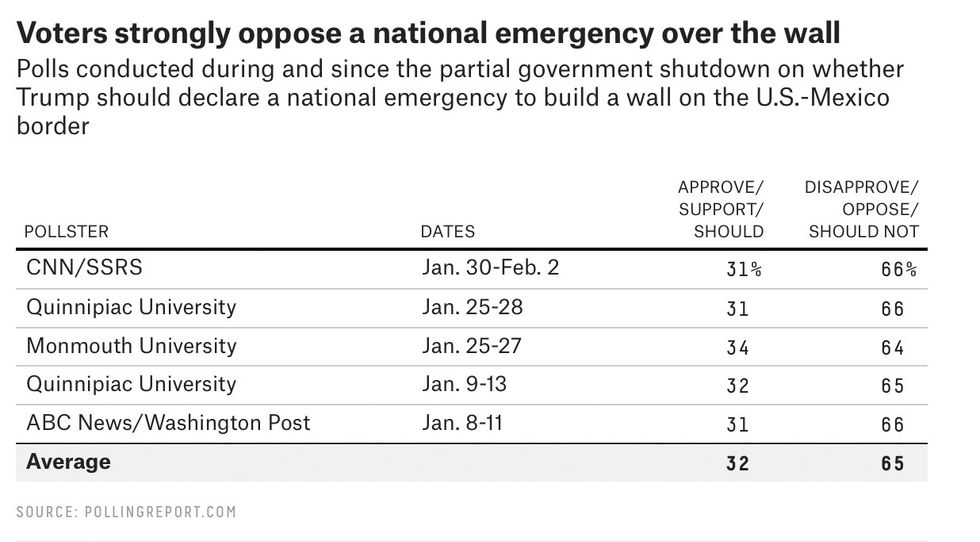This article from the Wall Street Journal last month shows how we can stop Trump's attempt to subvert our Democracy should he call a National Emergency because Congress won't bend to his will.
It is by Jess Bravin and was written last month. The title above is mine.
Critics of the Trump administration say they might sue if the president declares a national emergency to sidestep congressional opposition to his goal of a wall along the Mexican border. How might such litigation play out?
What legal authorities could President Trump claim?
Several federal statutes allow the president to re-allocate certain funds Congress has appropriated during a national emergency for specific purposes. The White House hasn't announced which particular powers it could assert, but legal experts have focused on provisions allowing reallocation of appropriations for military construction or for civil works projects by the Army Corps of Engineers, because they could open up the billions of dollars the president wants for the wall.
Could the Democratic-controlled House of Representatives sue to block him?
If the administration reallocates funds that Congress has appropriated for other projects, the House of Representatives, now led by Democrats, potentially could sue on grounds that its own constitutional powers have been infringed. Such a case likely would be filed in the U.S. District Court in Washington, D.C., which previously sided with the House in an appropriations dispute with the Obama-era White House.
In general, courts prefer not to decide disputes between other branches of government, relying instead on the political process to work things out. But if the House's Democratic leadership proceeds with its own lawsuit against Mr. Trump, it can thank the previous Republican majority for paving the way. Under Speaker John Boehner (R., Ohio), the House voted to sue the Obama administration alleging it had taken unlawful steps to implement the Affordable Care Act, includ-ing reallocating certain funds to reimburse insurers. In 2015, a federal district court in Washington, D.C., found the House had standing to pursue arguments that the executive branch usurped its principal power, that of appropriating federal funds. The "constitutional structure would collapse, and the role of the House would be meaningless, if the Executive could circumvent the appropriations process and spend funds however it pleases," Judge Rosemary Collyer wrote.
What would a potential suit focus on?
A suit filed by the House would likely focus on two legal claims: First, it would contend that the stalemate over the border wall is a political dispute between the elected branches, not a national emergency as contemplated by the National Emergencies Act, a 1976 law that formalizes the process for presidential declarations. Dozens of presidential declarations have been made in the past 40 years with little controversy, on crises as narrow as the civil war in Sierra Leone and as sweeping.
Wall Street Journal, January 12, 2019.
###
February 15, 2019
Post Script. In case you were wondering, 2/3 of Americans are opposed to Trump calling a national emergency over his wall. Call your elected officials and say how you feel.#StopTrump


